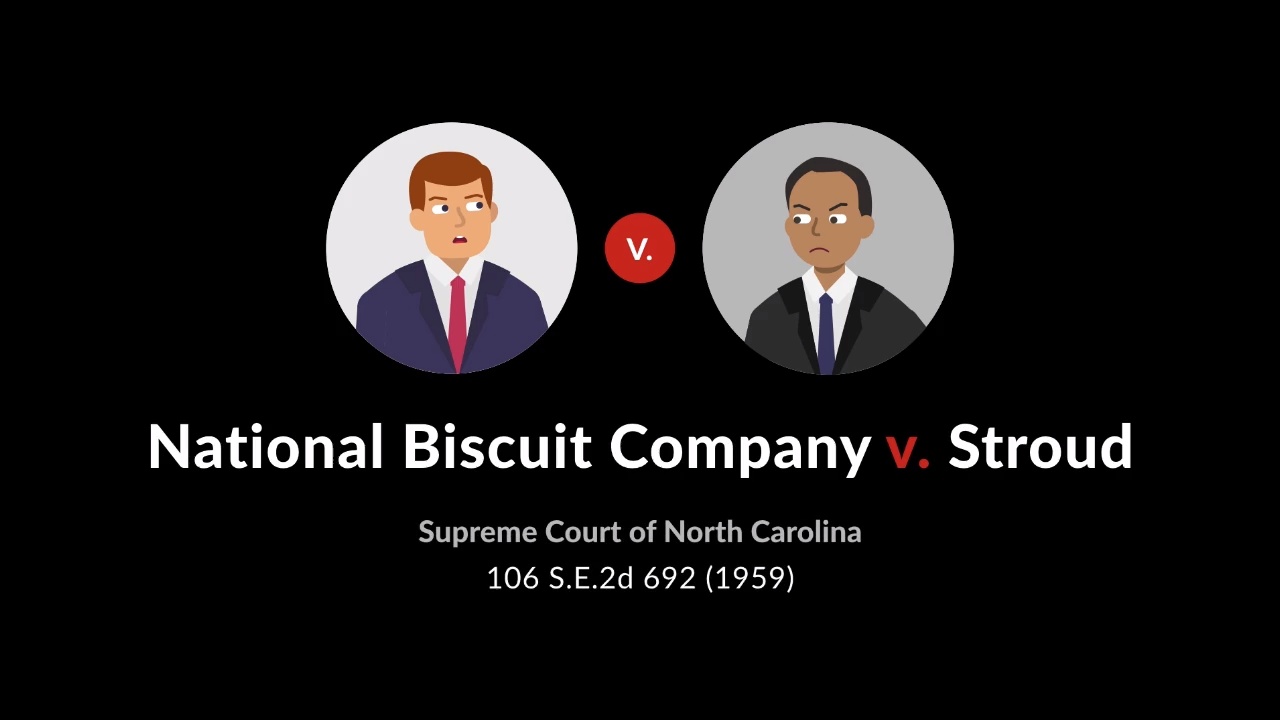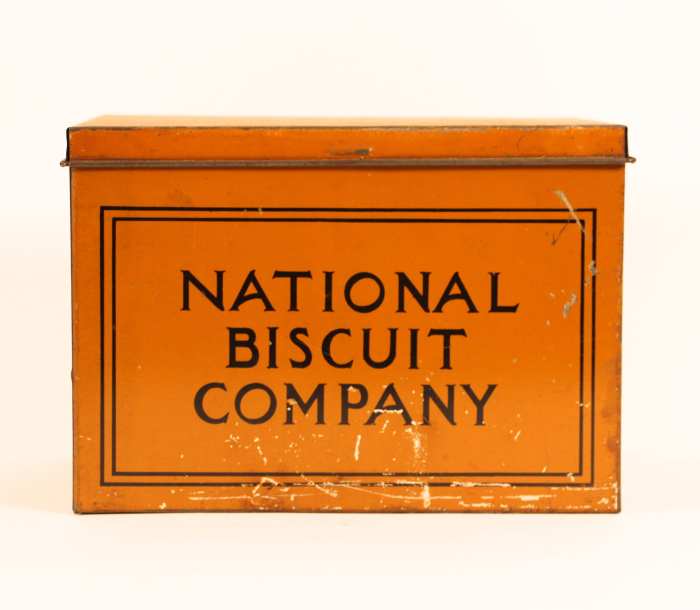National biscuit company v stroud – National Biscuit Company v. Stroud, a pivotal case in trademark law, stands as a testament to the intricate interplay between intellectual property rights and consumer protection. This case, which unfolded in the early 20th century, continues to shape the legal landscape surrounding trademarks and their role in safeguarding the integrity of brands and the interests of consumers.
In this comprehensive analysis, we delve into the historical context, legal principles, and far-reaching impact of National Biscuit Company v. Stroud, shedding light on its significance in the development of trademark law and its enduring relevance to businesses and individuals alike.
Case Overview

The National Biscuit Company v. Stroud case, decided by the Supreme Court of the United States in 1918, involved a dispute between the National Biscuit Company (Nabisco) and Frank G. Stroud over the use of the trademark “Uneeda Biscuit.” Nabisco claimed that Stroud had infringed on its trademark by using the name “Uneeda Lunch Biscuit” for his own product.
The Court ruled in favor of Nabisco, holding that Stroud’s use of the name was likely to cause confusion among consumers and therefore constituted trademark infringement.
Legal Analysis
The Court applied the principles of trademark law to the case. Trademark law protects the exclusive right of a company to use a particular mark or name to identify its goods or services. In order to establish trademark infringement, a plaintiff must show that the defendant’s use of a mark is likely to cause confusion among consumers.
The Court found that Stroud’s use of the name “Uneeda Lunch Biscuit” was likely to cause confusion among consumers because it was similar to Nabisco’s “Uneeda Biscuit” mark.
Impact of the Decision
The decision in National Biscuit Company v. Stroud had a significant impact on trademark law. It established the principle that a trademark can be infringed even if the defendant’s mark is not identical to the plaintiff’s mark. This principle has been applied in numerous subsequent cases and has helped to protect the rights of trademark owners.
Historical Context
The National Biscuit Company v. Stroud case was decided during a time of rapid growth in the use of trademarks. As companies began to market their products on a national scale, the need for strong trademark protection became increasingly important.
The decision in this case helped to establish the legal framework for trademark protection that is still in place today.
Procedural History
The National Biscuit Company v. Stroud case was filed in the United States District Court for the Southern District of New York in 1916. The district court ruled in favor of Nabisco, and Stroud appealed to the Supreme Court. The Supreme Court affirmed the district court’s decision in 1918.
Attorneys and Judges: National Biscuit Company V Stroud

The attorneys for Nabisco were Charles Neave and William H. Hotchkiss. The attorneys for Stroud were Melville Church and William H. Throop. The case was decided by a unanimous Supreme Court, with Justice Mahlon Pitney writing the opinion of the Court.
Case Documents

The key case documents in National Biscuit Company v. Stroud include the complaint, answer, and opinion of the Court. The complaint alleges that Stroud infringed on Nabisco’s trademark by using the name “Uneeda Lunch Biscuit” for his own product. The answer denies the allegations of the complaint.
The opinion of the Court holds that Stroud’s use of the name “Uneeda Lunch Biscuit” is likely to cause confusion among consumers and therefore constitutes trademark infringement.
FAQ Resource
What was the central issue in National Biscuit Company v. Stroud?
The case centered on the unauthorized use of the “Uneeda Biscuit” trademark by the defendant, Stroud, which the plaintiff, National Biscuit Company, alleged infringed upon its exclusive rights to the mark.
How did the court rule in National Biscuit Company v. Stroud?
The court ruled in favor of National Biscuit Company, holding that Stroud’s use of the “Uneeda Biscuit” mark constituted trademark infringement and unfair competition.
What is the significance of National Biscuit Company v. Stroud in trademark law?
This case established the principle of “secondary meaning,” which recognizes that a mark that is not inherently distinctive can acquire distinctiveness through extensive use and association with a particular product or service.